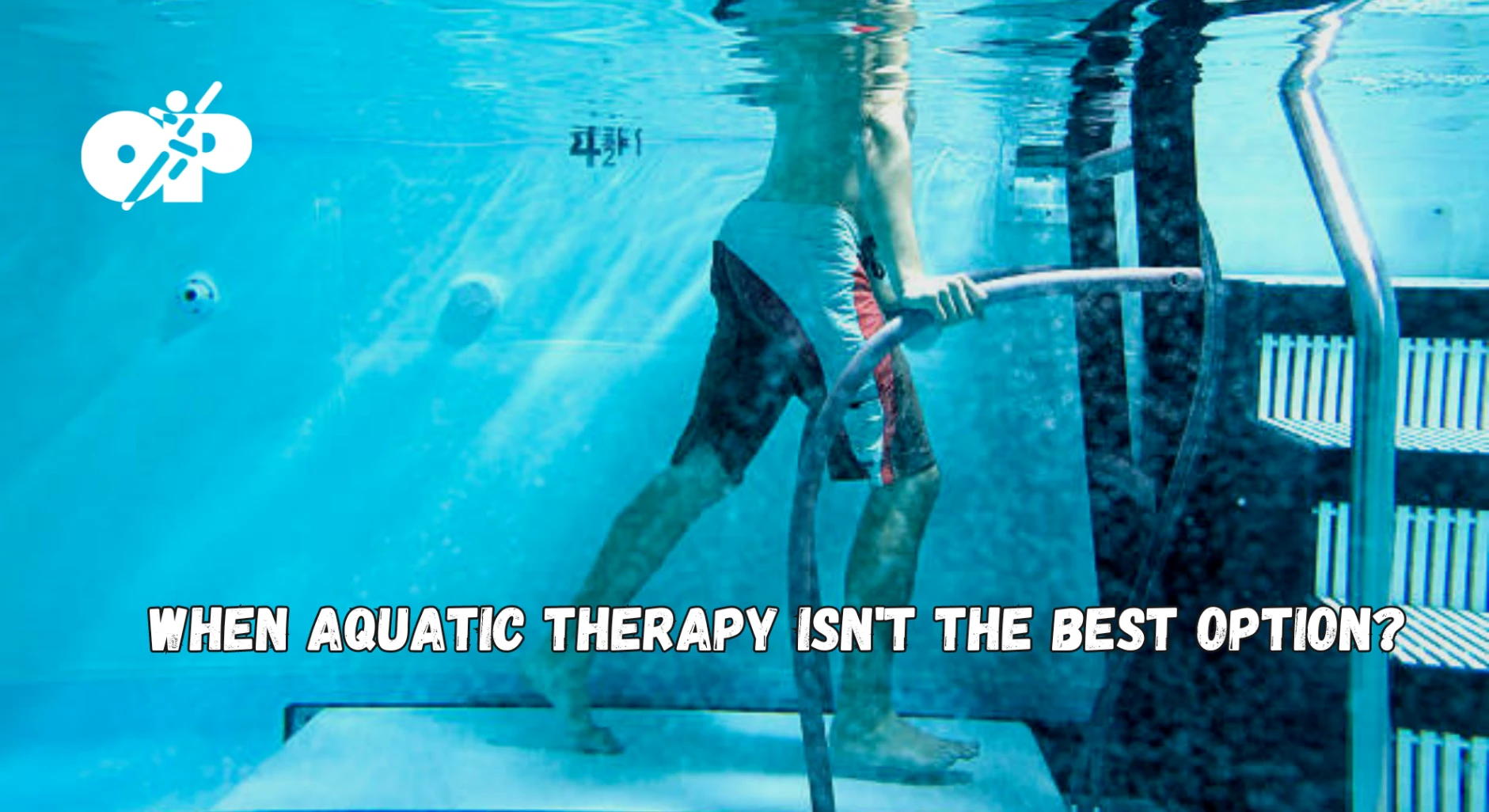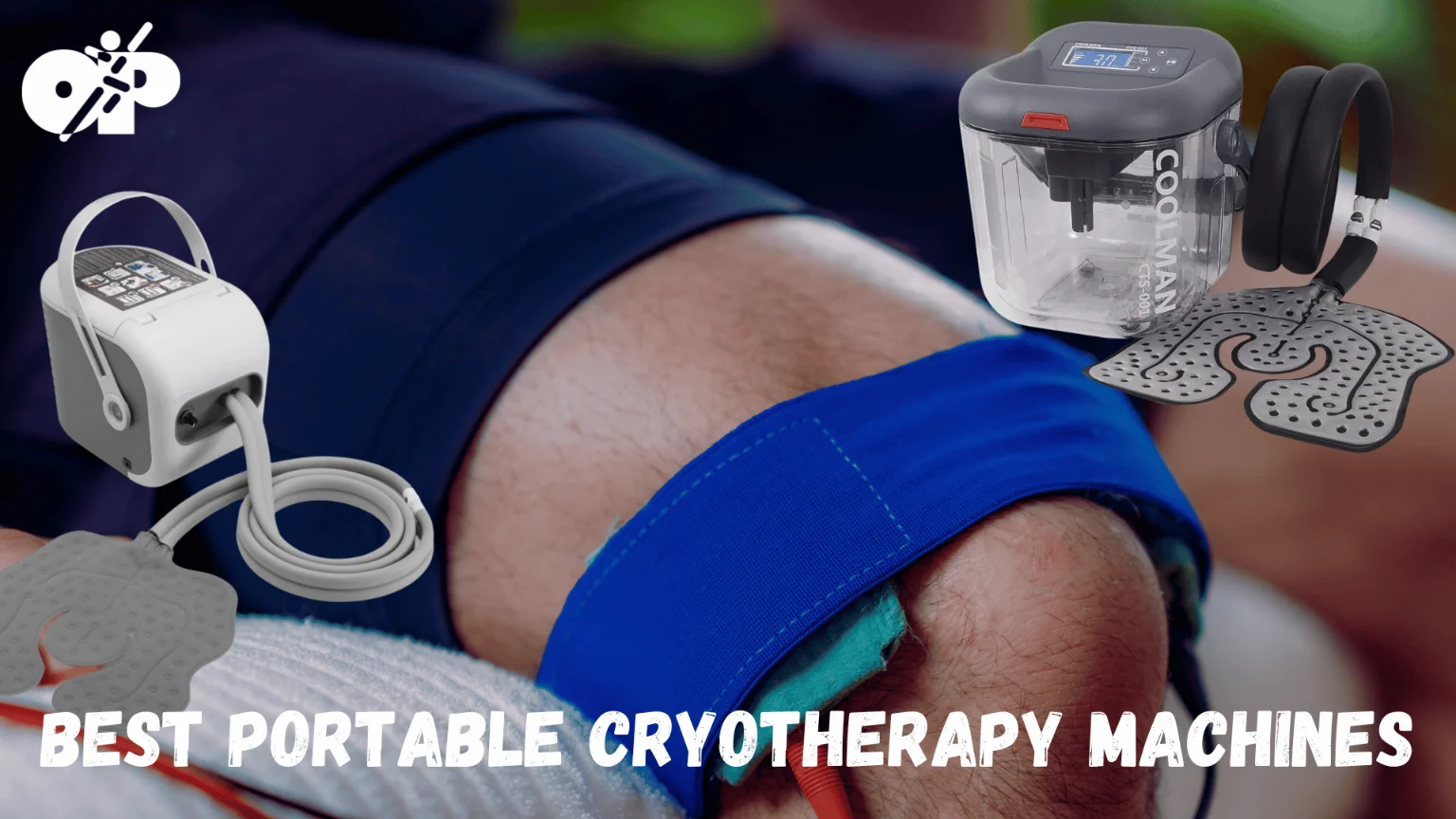Aquatic therapy, also known as hydrotherapy or water therapy, is a therapeutic procedure that involves performing exercises in water, usually in a warm swimming pool. It is widely used in various medical fields like physiotherapy, rehabilitation, and sports medicine. While aquatic therapy can be immensely beneficial in treating various health conditions, there are certain contraindications that need to be considered.
This article will explore the contraindications of aquatic therapy, providing insight into when and why this form of therapy may not be suitable. It aims to equip healthcare providers and patients with the necessary information to make an informed decision about the use of aquatic therapy.
Contraindications to Aquatic Therapy
Infectious Diseases
Aquatic therapy may be contraindicated for patients with contagious infections, including:
- Skin Infections Conditions such as athlete’s foot, ringworm, or open wounds may spread in a pool environment.
- Gastrointestinal Infections People suffering from diarrhea or other gastrointestinal infections should not partake in aquatic therapy to prevent the spread of infection.
- Respiratory Infections Those with respiratory infections may find it difficult to breathe in a humid pool environment.
Cardiovascular Conditions
Certain cardiovascular conditions may make aquatic therapy risky, including:
- Uncontrolled Hypertension The warm water of a therapy pool can lower blood pressure, which may cause problems for those with uncontrolled hypertension.
- Severe Heart Failure The hydrostatic pressure in water can cause additional strain on the heart, making it unsafe for individuals with severe heart failure.
Renal Failure
Patients with renal failure may have difficulty regulating bodily fluids. The immersion in water may cause potential fluid and electrolyte imbalances, making aquatic therapy unsuitable for such individuals.
Open Wounds or Ulcers
Open wounds, ulcers, or burns can become infected in a pool environment. Therefore, those with these conditions are often advised to avoid aquatic therapy.
Allergies
Some individuals may be allergic to the chemicals used to treat pool water, such as chlorine. In such cases, aquatic therapy might lead to allergic reactions.
Incontinence
Incontinence can pose both a health risk and a hygiene concern. People with uncontrollable bladder or bowel movements may be advised to avoid aquatic therapy.
Severe Epilepsy
People with uncontrolled seizures, particularly those that are water-induced, should avoid aquatic therapy, as a seizure during a session could be life-threatening.
Psychological Conditions
Aquatic therapy can be a calming and soothing experience for many, but for those with certain psychological conditions, it may not be appropriate. Some of these conditions include:
- Aquaphobia Individuals with a severe fear of water may find aquatic therapy traumatic rather than therapeutic.
- Severe Anxiety or Panic Disorders The water environment might trigger anxiety or panic attacks for those with these disorders.
- Cognitive Impairments Those with significant cognitive impairments may struggle to follow instructions or may behave unpredictably in a pool environment, posing safety concerns.
Respiratory Conditions
Respiratory conditions need careful consideration before proceeding with aquatic therapy:
- Chronic Obstructive Pulmonary Disease (COPD) The humidity and pressure of the water can affect breathing, making it difficult for individuals with COPD to participate in aquatic therapy.
- Asthma While warm and humid conditions may benefit some asthmatics, it could exacerbate symptoms for others. Close monitoring and individual assessment are essential.
Musculoskeletal Conditions
Certain musculoskeletal conditions may restrict the suitability of aquatic therapy:
- Severe Osteoporosis The reduced gravity in water could cause fractures in those with severe osteoporosis.
- Rheumatoid Arthritis during Active Inflammation During active inflammation, exercises in water may exacerbate symptoms.
- Pregnancy While aquatic therapy is often recommended for pregnant women, there are specific situations when it may not be suitable:
- High-Risk Pregnancy Women with high-risk pregnancies should consult their healthcare providers before engaging in aquatic therapy.
- Third Trimester Careful consideration must be given to the types of exercises and the water temperature during the third trimester.
Sensitivity to Heat
Aquatic therapy usually involves warm water, which may not be suitable for those with heat sensitivity, such as individuals with:
- Multiple Sclerosis Heat can worsen symptoms for some individuals with Multiple Sclerosis.
- Peripheral Vascular Disease Warm water may exacerbate symptoms by causing vasodilation.
Immune-suppressed Individuals
Those with weakened immune systems may be at increased risk of infection from bacteria in the pool environment. Strict hygiene protocols must be followed, and individual assessment is necessary.
Recent Surgery or Radiation Therapy
Patients who have recently undergone surgery or radiation therapy may have wounds or scars that must not be exposed to chlorinated water.
Skin Infections and Conditions
Aquatic therapy requires careful evaluation for those with skin conditions:
- Open Wounds and Ulcers Any open wound or ulcer could become a gateway for bacteria present in the pool water. A comprehensive assessment of wound healing status must be made before considering aquatic therapy.
- Eczema or Psoriasis Individuals with active flare-ups of skin conditions like eczema or psoriasis may find the chlorine in pool water irritating. Specialized water treatment or individualized care plans may be required.
Uncontrolled Hypertension
Uncontrolled hypertension poses challenges in aquatic therapy:
- Blood Pressure Fluctuations The warm water may cause vasodilation, leading to fluctuations in blood pressure. Regular monitoring is needed to ensure that blood pressure remains stable.
- Medication Considerations The effect of blood pressure medications may be altered in a water environment, requiring careful management and collaboration with the prescribing physician.
Chronic Obstructive Pulmonary Disease (COPD)
COPD requires specialized care within aquatic therapy
- Breathing Challenges The buoyancy and pressure of water may make breathing more laborious for COPD patients. Therapists must be trained to recognize and manage respiratory distress.
- Energy Conservation Energy conservation techniques must be incorporated into therapy plans for individuals with COPD, to prevent fatigue and exacerbation of symptoms.
Severe Osteoporosis
The handling of patients with severe osteoporosis requires specialized knowledge:
- Risk of Fractures The reduced weight-bearing in water might pose a risk of fractures in those with severe osteoporosis. Careful planning and a controlled environment are essential.
- Appropriate Exercise Selection Choosing the right exercises that strengthen without endangering the bones is crucial. Collaboration with an osteoporosis specialist may be beneficial.
High-Risk Pregnancy
High-risk pregnancies need special attention in aquatic therapy:
- Monitor Vital Signs Regular monitoring of both mother and baby’s vital signs is essential.
- Avoid Overheating The water temperature must be carefully controlled to prevent overheating, which can be harmful during pregnancy.
- Individualized Exercise Plan The exercise plan must be individualized to suit the specific needs and stages of pregnancy, avoiding any movements that may cause stress or strain.
Sensory Impairments
People with sensory impairments, such as blindness or deafness, may require special considerations:
- Communication Therapists must find effective ways to communicate with individuals who have hearing or visual impairments, ensuring that instructions are clear and understood.
- Safety Measures Additional safety measures may be needed to accommodate for the lack of one or more senses, such as tactile cues or specialized equipment.
Immunocompromised Conditions
People with weakened immune systems must be handled with care in an aquatic environment:
- Infection Risk Individuals with immunocompromised conditions are more susceptible to infections, including those that may be present in a pool environment.
- Close Monitoring Regular health checks and close monitoring for signs of infection are crucial.
- Collaboration with Medical Team A comprehensive plan must be developed in collaboration with the medical team managing the immunocompromised condition, ensuring all treatment aligns.
Recent Surgery or Radiation Therapy
The challenges of recent surgery or radiation therapy in aquatic therapy include:
- Wound Healing Ensuring wounds are adequately healed and that no risk of infection remains is vital before commencing aquatic therapy.
- Tailored Exercise Program An exercise program must be carefully tailored to avoid stress or strain on the affected area.
- Consideration of Side Effects Radiation therapy may result in fatigue or other side effects that require consideration in planning and executing aquatic therapy.
Severe Anxiety or Panic Disorders
Managing severe anxiety or panic disorders in aquatic therapy requires particular sensitivity:
- Understanding Triggers Therapists must understand what might trigger anxiety or panic for the individual and adapt the therapy accordingly.
- Building Trust A trusting relationship between the therapist and patient must be established, possibly requiring extended pre-therapy consultations.
- Emergency Protocols Clear protocols must be in place for managing an anxiety or panic attack during a therapy session.
Multiple Sclerosis (MS)
Multiple Sclerosis presents unique challenges in aquatic therapy:
- Temperature Sensitivity Many people with MS are sensitive to heat, and the temperature of the pool must be carefully controlled.
- Fatigue Management MS often results in fatigue, and therapy sessions must be paced to prevent overexertion.
- Adaptation to Symptoms: MS symptoms can vary widely between individuals and even from day to day. A highly adaptable approach is necessary.
Peripheral Vascular Disease
Peripheral Vascular Disease (PVD) requires careful management in aquatic therapy:
- Avoiding Vasodilation Warm water may cause vasodilation that can exacerbate symptoms of PVD. Temperature and exercise intensity must be carefully controlled.
- Monitoring Circulation Regular monitoring of circulation in the extremities may be necessary, especially if there is a history of claudication or other circulatory issues.
Pediatric and Geriatric Considerations
Both very young and elderly patients may require special considerations:
- Pediatric Children, especially those with developmental or behavioral issues, may need specialized approaches in aquatic therapy.
- Geriatric Older adults may have multiple comorbidities that require careful consideration and potentially more extended pre-therapy assessment and planning.
Diabetes
Managing diabetes in an aquatic therapy environment demands specialized care:
- Monitoring Blood Sugar Regular monitoring of blood sugar levels before, during, and after therapy sessions is essential to prevent hypoglycemia or hyperglycemia.
- Foot Care Foot care is paramount for those with diabetes, and particular attention must be paid to foot hygiene and inspection for cuts or wounds that could become infected in the pool.
- Communication with Healthcare Team Collaboration with the healthcare team managing diabetes is crucial to ensure therapy aligns with the overall treatment plan.
Balance Disorders
Balance disorders present unique challenges in aquatic therapy:
- Safety Measures Additional safety measures, such as support rails or one-on-one supervision, may be necessary.
- Individualized Therapy Plans Balance disorders vary widely in cause and symptoms, and therapy must be highly individualized to address the specific issues of each patient.
- Collaboration with Specialists Working with specialists in balance disorders, such as ENT physicians or neurologists, may be beneficial.
Obesity
Managing obesity in aquatic therapy requires a sensitive and tailored approach:
- Pool Accessibility Ensuring that pool facilities are accessible and comfortable for individuals with obesity is essential, including appropriate changing facilities and entry/exit points.
- Tailored Exercise Program An exercise program must be carefully designed to provide effective exercise without putting undue strain on joints.
- Sensitivity and Support Building a supportive and non-judgmental environment is vital to encourage participation and persistence in therapy.
Oncological Considerations
Cancer patients present specific challenges in aquatic therapy:
- Managing Fatigue Cancer and its treatments often result in fatigue, and therapy must be paced to prevent overexertion.
- Infection Risk Some cancer treatments may result in immunosuppression, and careful attention must be paid to infection risk.
- Collaboration with Oncology Team Close collaboration with the oncology team is necessary to ensure therapy aligns with the overall treatment plan.
Patients with Assistive Devices
Patients who rely on assistive devices such as prosthetics or wheelchairs need special consideration:
- Accessibility Ensuring that pool facilities are accessible to those using assistive devices is paramount.
- Specialized Equipment Specialized equipment may be needed to allow individuals to participate fully in aquatic therapy.
- Tailored Therapy Plans Therapy plans must be carefully tailored to the individual’s abilities and needs, taking into account the use of assistive devices.
Indications of Aquatic Therapy Amidst Contraindications
While aquatic therapy has a range of contraindications that must be carefully considered, this does not negate its potential as a powerful therapeutic modality for many individuals. In fact, many of the contraindications can be managed with careful planning, specialized training, and individualized care. The ability to tailor therapy to the specific needs, abilities, and challenges of each patient enables aquatic therapy to be indicated for a broad spectrum of conditions. This adaptability, combined with the unique properties of water, makes aquatic therapy a valuable tool in the rehabilitation and treatment of various health issues.
Indications of Aquatic Therapy
Now, let’s explore some of the primary indications where aquatic therapy is beneficial:
Musculoskeletal Disorders
- Arthritis The buoyancy of water relieves pressure on joints, making it an excellent environment for arthritis sufferers.
- Post-surgical Rehabilitation Aquatic therapy offers a gentle way to regain strength and mobility after surgery.
- Chronic Back Pain Water provides resistance and support, allowing for effective exercises that alleviate back pain.
Neurological Conditions
- Stroke Rehabilitation Aquatic therapy can aid in balance and coordination for stroke survivors.
- Parkinson’s Disease The water environment allows for improved mobility and exercise for individuals with Parkinson’s.
Cardiopulmonary Rehabilitation
- Heart Disease Aquatic therapy can be part of a cardiac rehabilitation program, enhancing cardiovascular fitness without undue stress on the heart.
- Chronic Lung Disease The resistance of water can aid in respiratory muscle training.
Pediatric Conditions
- Developmental Disorders Children with developmental disorders can benefit from the fun and supportive environment of the pool.
- Cerebral Palsy Aquatic therapy offers opportunities for movement and strength-building in a gravity-reduced environment.
Geriatric Care
- Fall Prevention Balance and strength training in the water can aid in fall prevention for older adults.
- Osteoarthritis Gentle aquatic exercises can relieve pain and improve mobility in seniors with osteoarthritis.
Mental Health and Wellness
- Stress Reduction The soothing properties of water can help in reducing stress and promoting relaxation.
- Depression and Anxiety Management Aquatic therapy can be a part of a holistic approach to managing mental health conditions.
Aquatic Therapy – Conclusion
Aquatic therapy is not a one-size-fits-all solution but a dynamic and personalized approach to health and well-being. Its effectiveness stems from the unique properties of water and the specialized training and sensitivity of the therapists who administer it. As our understanding of both the contraindications and indications grows, so too does the potential of aquatic therapy to enhance lives, promote healing, and contribute to a holistic and compassionate approach to healthcare.





